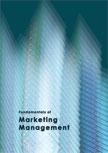Volkswagen's Iroc Concept: Reviving the Scirocco to Target A Niche
Market
|
|
ICMR HOME | Case Studies Collection
Case Details:
Case Code : MKTG153
Case Length : 16 Pages
Period : 2000-2006
Organization : Volkswagen AG
Pub Date : 2006
Teaching Note : Available
Countries : USA, Europe
Industry : Automobile
To download Volkswagen's Iroc Concept: Reviving the Scirocco to Target A Niche Market case study
(Case Code: MKTG153) click on the button below, and select the case from the list of available cases:

Price:
For delivery in electronic format: Rs. 300;
For delivery through courier (within India): Rs. 300 + Shipping & Handling Charges extra
» Marketing Case Studies
» Marketing Management Short Case Studies
» View Detailed Pricing Info
» How To Order This Case
» Business Case Studies
» Case Studies by Area
» Case Studies by Industry
» Case Studies by Company
Please note:
This case study was compiled from published sources, and is intended to be used as a basis for class discussion. It is not intended to illustrate either effective or ineffective handling of a management situation. Nor is it a primary information source.
Chat with us

Please leave your feedback

|
|




<< Previous
Background Note
|
The history of Volkswagen (which means “peoples's car”) can be traced to the
1930s, when Adolf Hitler approached Ferdinand Porsche, a reputed automobile
engineer and designer, to design an affordable car for the common man, which
could seat two adults and three children. In 1936, the first prototype of the
car called the KdF-Wagen,9 was designed in Stuttgart, Germany. This prototype was
similar to what came to be known as the Beetle in later years. In 1938,
construction work began on a production plant at Wolfsburg, Germany.
During World War II, the company's focus shifted to the production of military
vehicles (Type 81 Kübelwagen and the Schwimmwagen).
|

|
After the war ended, Volkswagen was revived by British Army officer Major Ivan
Hirst, as the area fell under the occupation zone10 of the British. The
factory started producing Beetle cars for the British army, army officers,
and the German post office. By 1946, the factory was producing 1,000 cars a
month.
|
|
But finding
a owner for the factory became difficult as representatives from the
British, American, and French motor industries refused to take control
of the company. While some felt that the cars produced by the company
were “outdated”, “too ugly” and “too noisy”, others were dissuaded by
the town's close proximity to East Germany. Thus, the factory came under
a trust controlled by the West German government.
In 1948, Heinrich Nordhoff (Nordhoff), a former senior manager at Adam Opel GmbH11 (Opel), was recruited to run the factory. Under Nordoff, a
number of commercial Type 2 vehicles such as vans and pickups were
launched... |
Excerpts >>
|
|









